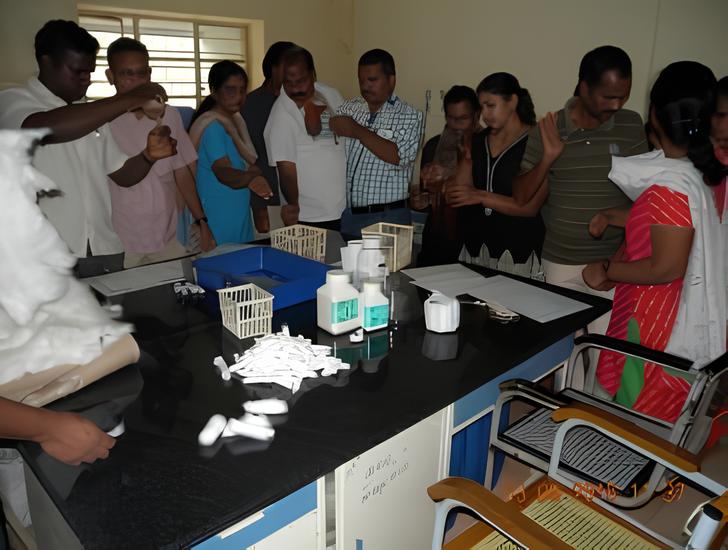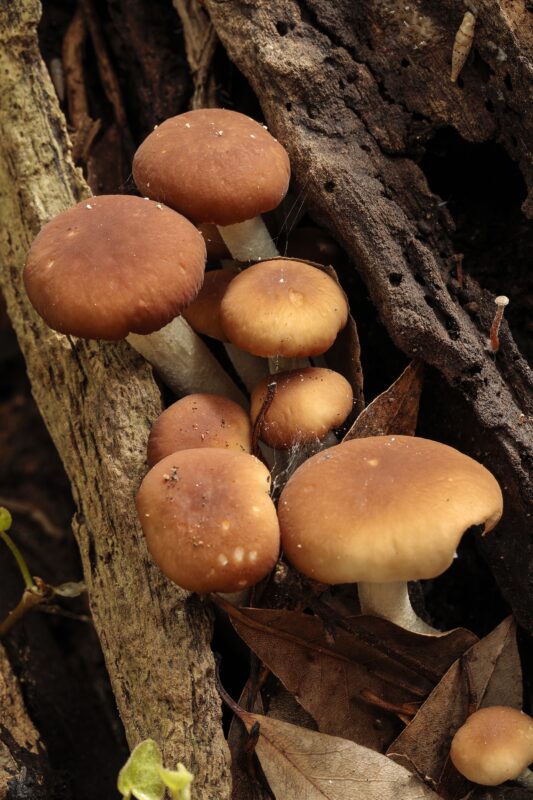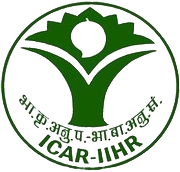About Us
Home / About Us
ABOUT US
Mushroom Research Laboratory – ICAR-IIHR
The Mushroom Research Laboratory, operating under the Division of Plant Pathology at ICAR–Indian Institute of Horticultural Research (IIHR), stands as a national leader and pioneering force in the field of mushroom science in India. Renowned for its work in mushroom biodiversity conservation, quality spawn production, training programs, and technological innovation, the lab is at the forefront of shaping a sustainable, nutrition-rich future through mushroom cultivation. With a clear mission to integrate mushrooms into mainstream Indian diets and contribute to the rural and urban economy, the lab’s efforts are strategically aligned to address some of the most pressing challenges faced by society today, including malnutrition, youth unemployment, women’s empowerment, climate change, and the wasteful burning of agro-residues.
Mushrooms, one of the planet’s oldest and most biologically diverse life forms, have fascinated humans for centuries. Historically, they have held a revered status across ancient civilizations, including Greek, Mayan, Indian, and Chinese cultures, for their culinary excellence, healing properties, and spiritual significance. While Western societies long remained cautious and often avoided mushrooms, cultures across Asia, including India, embraced them as part of their food systems and traditional medicine. However, despite this legacy, the modern Indian public remains largely unaware of the full nutritional, medicinal, and ecological potential that mushrooms offer.
At ICAR-IIHR, we bridge this gap by combining ancient wisdom with modern science. Our research and outreach are designed not only to develop efficient, clean, and low-cost mushroom cultivation methods, but also to promote widespread awareness about their benefits. Through state-of-the-art facilities, community-based training, and knowledge-sharing initiatives, we are working to make mushrooms widely accessible, economically viable, and socially accepted. This ensures they can contribute meaningfully to both national nutrition goals and grassroots entrepreneurship.


Our Core Focus Areas
We focus on research, spawn production, training, conservation, and sustainable technologies to promote mushrooms as a nutritious food, income source, and eco-friendly solution.
The lab is involved in scientific studies on mushroom biodiversity, cultivation technologies, and nutrition enhancement. It has developed complete end-to-end cultivation systems for Oyster, Milky, and Shiitake mushrooms — and is actively researching other varieties like Lion’s Mane, King Oyster, Beech, and Black Poplar mushrooms.
With an annual supply of 51 tons of quality spawn, the lab supports mushroom growers across India. It also offers technical consultancy for setting up or upgrading spawn labs in both public and private sectors.
Through entrepreneurial and orientation training programs, the lab empowers youth, women, and rural communities to take up mushroom cultivation as a sustainable livelihood. Practical, hands-on courses are conducted regularly, supported by field demonstrations and lab facilities.
The lab has documented over 400 species of wild mushrooms and is working on domestication of native edible strains such as Pleurotus djamor from the Western Ghats and Macrocybe species from Bengaluru.
ICAR-IIHR is the first in India to develop indigenous spawn production machinery and integrate solar energy into the cultivation and spawn generation process — making the technology more energy- and labor-efficient.
The lab pioneered the concept of Ready-To-Fruit (RTF) mushroom bags, enabling over 5000 women to cultivate mushrooms at home. This initiative has now evolved into a successful startup model for rural employment and nutritional improvement.
Dehydrated mushroom-based products like Arka Mushroom Rasam Powder and Mushroom Chutney Powder are developed in-house to add variety to Indian meals while minimizing post-harvest loss. The lab also focuses on producing iron-, calcium-, and vitamin D-enriched mushrooms to fight malnutrition.

Transform Your Future with Mushroom Training
Learn the science and skills of mushroom cultivation from India’s leading experts. Our hands-on training programs are designed for farmers, entrepreneurs, students, and anyone passionate about sustainable agriculture.

Our Impact
Despite India’s vast agricultural landscape and ideal climatic conditions, the country currently contributes only 0.27% to global mushroom production. This is a fraction of what is possible, especially when considering the abundance of underutilized agro-residues, a hardworking and affordable rural workforce, and a climate that supports the growth of a wide variety of mushroom species throughout the year.
The Mushroom Research Laboratory at ICAR-IIHR is committed to transforming this unrealized potential into a national strength. By leveraging advanced research, sustainable cultivation practices, and community-based training programs, the lab aims to create a robust ecosystem for mushroom production in India. This effort not only supports nutritional security and environmental health but also empowers farmers, women, and youth through income generation and skill development.
We invite you to be part of this growing movement to build a healthier, greener, and more self-reliant India, with mushrooms playing a key role in that transformation.
